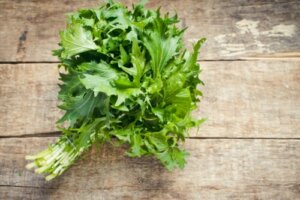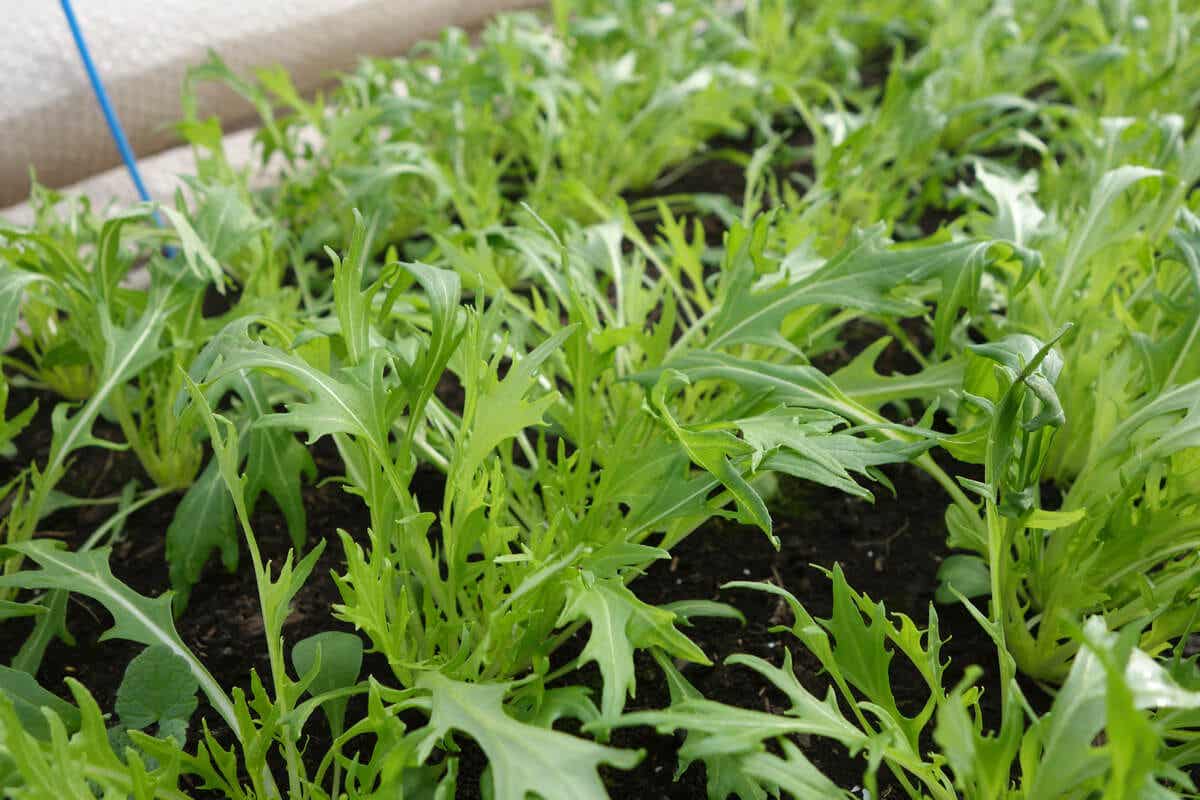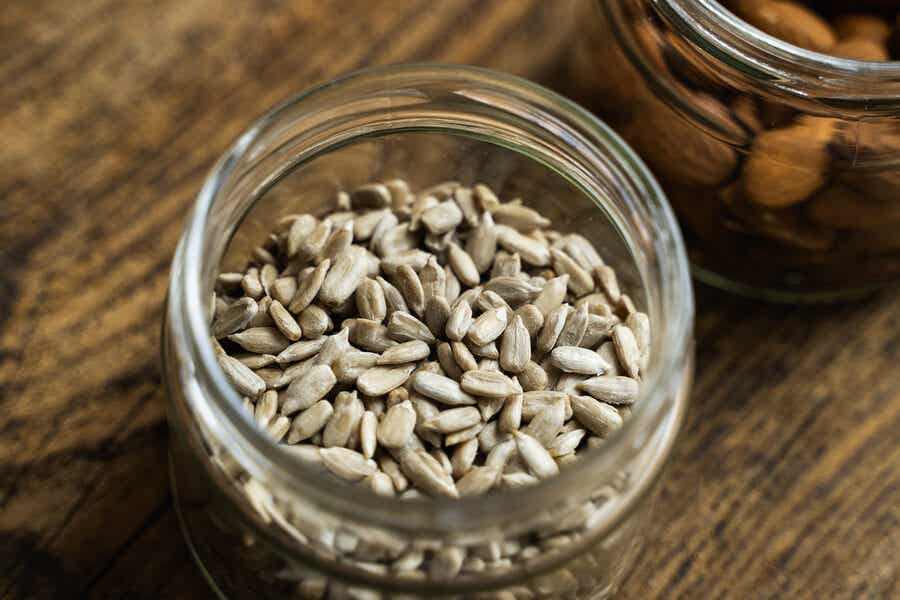The Benefits of Mizuna: Nutritional Value and Preparation


Written and verified by the nutritionist Saúl Sánchez Arias
Mizuna is an organic vegetable that can be used to prepare different vegetable dishes, such as salads. It contains a large amount of antioxidants and anti-inflammatory substances, as well as a high concentration of vitamins. All of these benefits of mizuna mean it can be a good idea to include it in your diet.
It’s one of the most common vegetables in most industrially prepared salads that are sold commercially. However, very few people can identify this leaf.
Mizuna: nutrients and vitamins
The first thing we need to do is to define the specific appearance of mizuna. It’s a vegetable with three leaves that’s sold in green sprigs. It’s usually sold packaged, which guarantees its freshness.
From a nutritional point of view, its vitamin C and vitamin A content are worth highlighting. It also contains micronutrients of the B group and some minerals in small proportions. However, what really stands out is its antioxidant content.
This type of vegetable contains a large amount of phytonutrients in its interior. These elements can neutralize the formation of free radicals, thus helping to maintain homeostasis. In addition, they’re also important for regulating inflammation.
Finally, we shouldn’t forget its high fiber content. This substance is essential for good intestinal health.

Find out more: How Important is Vitamin K for Your Body?
Benefits of mizuna
Improves the immune system
Vitamin C is an essential element to ensure the proper functioning of the immune system. Maintaining its levels in the right range reduces your chances of contracting many infectious diseases, such as respiratory conditions. This was shown in research published in Frontiers in Immunology.
Healthier skin
The vitamin A content of mizuna is key to preventing problems related to skin health, according to a study published in Nutrition in Clinical Practice. Not only does it accelerate wound healing, but it also prepares the tissue for exposure to sunlight. This minimizes the damage associated with ultraviolet radiation.
Delays aging
Antioxidant nutrients are key elements in the prevention of aging. The neutralization of free radicals prevents them from accumulating in tissues, thus protecting against the development of diseases and physiological problems.
According to a review published in the journal Current Aging Science, regular consumption of a good amount of compounds with antioxidant agents is one of the most efficient ways to slow down the aging process.
You might be interested: Tips for Healthy Aging
Prevents the development of intestinal problems
Fiber is a compound that contributes to intestinal health. It’s a non-digestible element that increases the volume of the stools, thus stimulating passage and serving as an energy substrate for the bacteria that make up the microbiota.
Possible risks of consumption
The only risk involved in eating mizuna is if you do so without washing it correctly beforehand. You should wash it carefully under running water in order to remove any dirt or soil.
However, when it’s sold in supermarkets it’s usually packaged, which means it’s already been washed.
Making salads with mizuna
The best way to include mizuna in your diet is in salads, accompanied by other vegetables that also provide quality nutrients. You can also prepare green juices, but this destroys the fibers mechanically.
Ingredients
- 1 tomato
- 1 onion
- 1/2 lettuce
- Mizuna
- Sunflower seeds to taste
- A tub of fresh cheese
- Extra virgin olive oil and salt

Instructions
To prepare a mizuna salad you need to start by thoroughly washing all the vegetables under running water. Then tear both the mizuna and lettuce into fairly small pieces. Chop the tomato and onion into cubes with a knife.
Next, place these ingredients in a bowl, and sprinkle a couple of spoonfuls of sunflower seeds on top. Add some slices of fresh cheese and finish with a drizzle of extra virgin olive oil and salt to taste. You can also add other herbs or spices, such as oregano.
Mizuna: a healthy vegetable
Mizuna has many properties which are beneficial for your health, especially when you include it as part of a balanced and varied diet. It provides high-quality antioxidants and vitamins, key elements for the prevention of many chronic and complex diseases.
In addition, almost everyone has access to this vegetable. Its usually marketed in bags, which guarantees it’s fresh and that it will last well. It’s cheap and versatile for use in many different dishes.
All cited sources were thoroughly reviewed by our team to ensure their quality, reliability, currency, and validity. The bibliography of this article was considered reliable and of academic or scientific accuracy.
- Cerullo G, Negro M, Parimbelli M, Pecoraro M, Perna S, Liguori G, Rondanelli M, Cena H, D’Antona G. The Long History of Vitamin C: From Prevention of the Common Cold to Potential Aid in the Treatment of COVID-19. Front Immunol. 2020 Oct 28;11:574029. doi: 10.3389/fimmu.2020.574029. PMID: 33193359; PMCID: PMC7655735.
- Polcz ME, Barbul A. The Role of Vitamin A in Wound Healing. Nutr Clin Pract. 2019 Oct;34(5):695-700. doi: 10.1002/ncp.10376. Epub 2019 Aug 7. PMID: 31389093.
- Galvan YP, Alperovich I, Zolotukhin P, Prazdnova E, Mazanko M, Belanova A, Chistyakov V. Fullerenes as Anti-Aging Antioxidants. Curr Aging Sci. 2017;10(1):56-67. doi: 10.2174/1874609809666160921120008. PMID: 27659261.
This text is provided for informational purposes only and does not replace consultation with a professional. If in doubt, consult your specialist.








